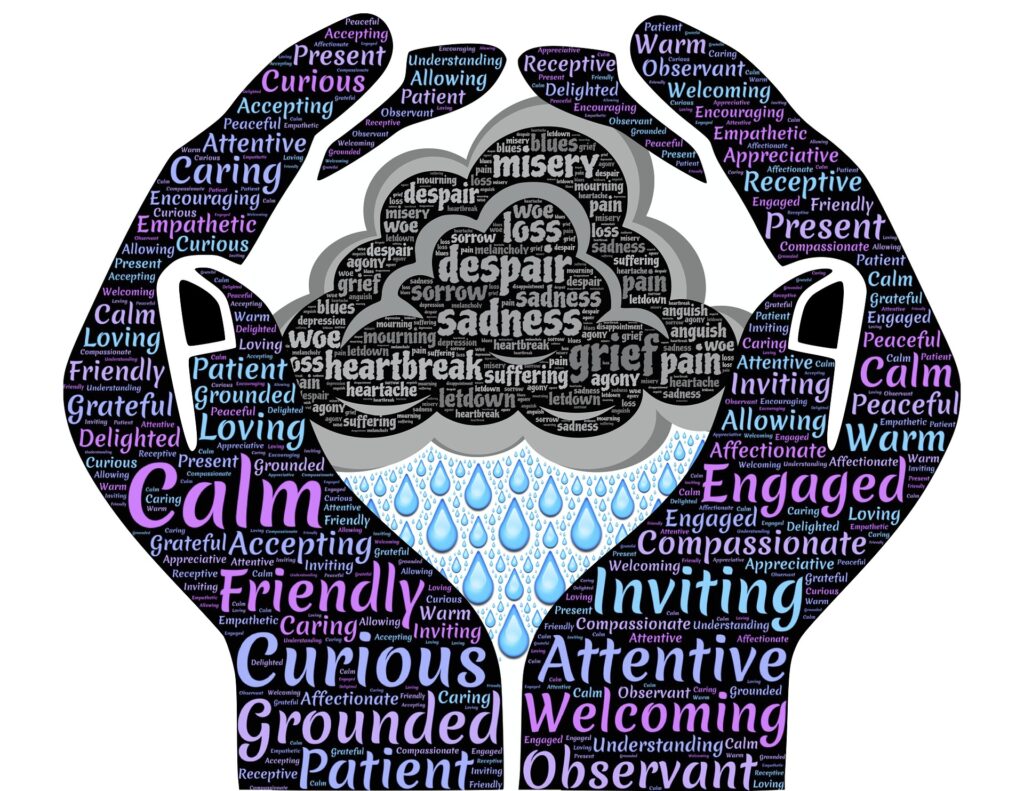Why Self Acceptance Is Important
I Accept who i am.
So, what is self-accpetance?
Self-acceptance is just what its name implies: the condition of accepting oneself completely. True self-acceptance means accepting oneself unconditionally, without limitations, restrictions, or exceptions (Seltzer, 2008).
Self-acceptance is the act of embracing oneself and all of one’s personality features as they are. We accept them regardless of their positivity or negativity. This comprises all physical and mental characteristics. Self-acceptance is the realisation that our value exceeds your own characteristics and behaviours. This is sometimes referred to as radical self-acceptance.
“Self-acceptance is an individual’s acceptance of all of his/her attributes, positive or negative.”
(Morgado & colleagues’ 2014)

Accept yourself?
It may seem like a weird question; what exactly does it mean to accept oneself? We all accept ourselves as a regular part of our daily lives, don’t we? Self-acceptance is not an automatic or default condition, as it turns out. Many of us struggle to accept ourselves just as we are. Acknowledging the positive aspects of oneself is not difficult, but what about the negative? How could we ever accept our failures or flaws?
That is precisely what we should do! Learn why we should accept ourselves and our flaws, including all, and practical advice on how to do so by reading on.
The significance of accepting oneself
What effect does self-acceptance have on our daily life?
According to research, self-acceptance is essential for mental health and well-being as a whole. There seems to be a clear correlation between low levels of self-acceptance and mental illness, according to the data. Low self-acceptance impacts our everyday life, job, relationships, and well-being in other ways. Here are five illustration:

Emotion
Self-acceptance helps you control your emotions

Forgiving
Self-acceptance helps you forgive yourself

Confidence
Self-acceptance gives you more self-confidence

Compassion
Self-acceptance promotes self-compassion.

Emotion Self-acceptance helps us control our emotions
A lack of self-acceptance might affect the area of our brain that regulates our emotions. For example, as a consequence of increased worry, tension, or rage, this might result in mental imbalance and emotional outbursts.
A lack of self-acceptance restricts our capacity for satisfaction. It also has an impact on our psychological and emotional well-being. It keeps us focused on our worst qualities of ourselves, and these bad ideas lead to unpleasant feelings.
In contrast, high levels of self-acceptance are associated with more pleasant feelings and psychological well-being. Self-acceptance may improve our mood and protect us from the consequences of stress, depression, and anxiety.

Forgive Self-acceptance helps us forgive ourselves
When we learn to accept ourselves, we are less likely to be hard on ourselves. It helps us think of ourselves more positively, thoughtfully, and balanced way.
Forgiveness and acceptance go hand in hand. We split into different parts because we can’t accept and forgive ourselves. The area that needs overlooking (Forgive) and the area that needs to be taken (accept) conflicts with each other. Self-acceptance can help us bridge the gap between them, letting us forgive ourselves for our mistakes and move on.
It’s vital for our health because focusing on the past will keep us stuck in a loop of negative thoughts and feelings.

Confidence Self-acceptance gives us more self-confidence
When we accept ourselves, we may feel better about ourselves. It helps us see that our perceived flaws don’t define who we are or how much we’re worth.
When we are aware of ourselves, we’re more likely to do things even though we’re scared. On the other hand, not being able to accept ourselves can stop us from going after our dreams.
Self-acceptance helps us see that failure doesn’t make us who we are and is always a chance to learn, improve and get better.
Having more confidence can also give us more freedom. It lets us make our own decisions without having to get other people’s approval.

compassion Self-acceptance promotes self-compassion.
Self-compassion is more significant than self-esteem for our mental and emotional health. Giving ourselves “the very same kindness and concern we would give a good friend” is vital. And anyone who has trouble accepting themselves will agree that they are often their own worst enemies.
Self-compassion can help us be more kind to ourselves when we fail and make us stronger when adverse events occur.
When we accept ourselves, we can be ourselves. When we don't accept ourselves, we always try to hide, censor, or repress who we are and can make us feel tired and worn out. Self-acceptance can help us be ourselves more and worry less about what other people think of us. When we accept ourselves, we feel free to be who we are.
Joseph L. Wong
4 Self-acceptance exercises to enhance everyday life
Genuine self-acceptance does not occur overnight. Daily practise and self-care may help us build our self-acceptance progressively over time.
Before you begin with these activities, maybe you would want to do a quick life satisfaction evaluation before performing your self-acceptance exercise, then retake again the brief life satisfaction evaluation after a month practising the Self-Acceptance exercise.
Download our complete Self-Acceptance Exercise Worksheet here.
These exercises on self-acceptance will show us how to practise daily self-love and acceptance:
exercise 01 Practice appreciation
Every day, list three to five things for which you are thankful. It might first seem difficult, particularly if you tend to concentrate on the negatives.
However, daily thankfulness practice helps retrain the brain to concentrate on the good.
Look for the good things in every situation that seems terrible. If you failed at something, be glad you learned something from it. Look for good things about the things you think are wrong with you.
exercise 02 Change how we think about negative things
Negative beliefs are the inner critic’s voice. They bring up great sorrow and impede us from achieving complete self-acceptance.
By writing out our negative self-beliefs, we may transform them. For instance, if you consider yourself a nasty person because of anything you did in the past, write it down.
After you have completed your list, reframe each of your beliefs. Start by asking yourself, “Is this true?” about each statement. Then, replace negative messages with more positive ones. For instance: “I’m a wonderful guy, but I’m just human, so I make mistakes sometimes.”
exercise 03 Pick the people who will help you.
List the people with whom you spend the most time. Think about how they talk to you: are they mostly nice or mostly mean?
Find the people who are usually negative and think about whether you could spend less time with them. Maybe you could even stop having anything to do with them.
This isn’t always possible, such as when it comes to a close family member. But try to cut out as many negative people from your life as you can. Surround yourself with positive people who like you and lift you up.
exercise 04 Give yourself a break
Self-acceptance requires forgiving yourself for past mistakes and regrets.
Use this exercise to forgive yourself for past mistakes and move on. It will help you remember that you’re just a person and that you did the best you could. This will help you let go of regrets and move on.
Think of a situation, action, or mistake that you would like to be forgiven for. Write down any thoughts you have about yourself that have to do with that situation.
For example, you might write, “I should not have done X. I’m so stupid.”
Next, give yourself permission to believe that. Write something like, “I’m sorry I thought I was stupid for that. “In reality,…” and complete the sentence.
Think about what a kind friend would tell you. It could say, “I was worried because…” or “I was hurting and made a bad choice.”
Download our complete Self-Acceptance Exercise Worksheet here.
“Often, it’s not about becoming a new person, but becoming the person you were meant to be, and already are, but don’t know how to be.” - Heath L. Buckmaster, author

Scanxiety – Phases, Symptoms, and Coping with it

Reaching new levels of relaxation using guided imagery – for stress and anxiety

The Emotion Wheel: Everything to know

Coping with lung cancer

Deeper insight into what cancer patients feel

Good read, thank la for the info.